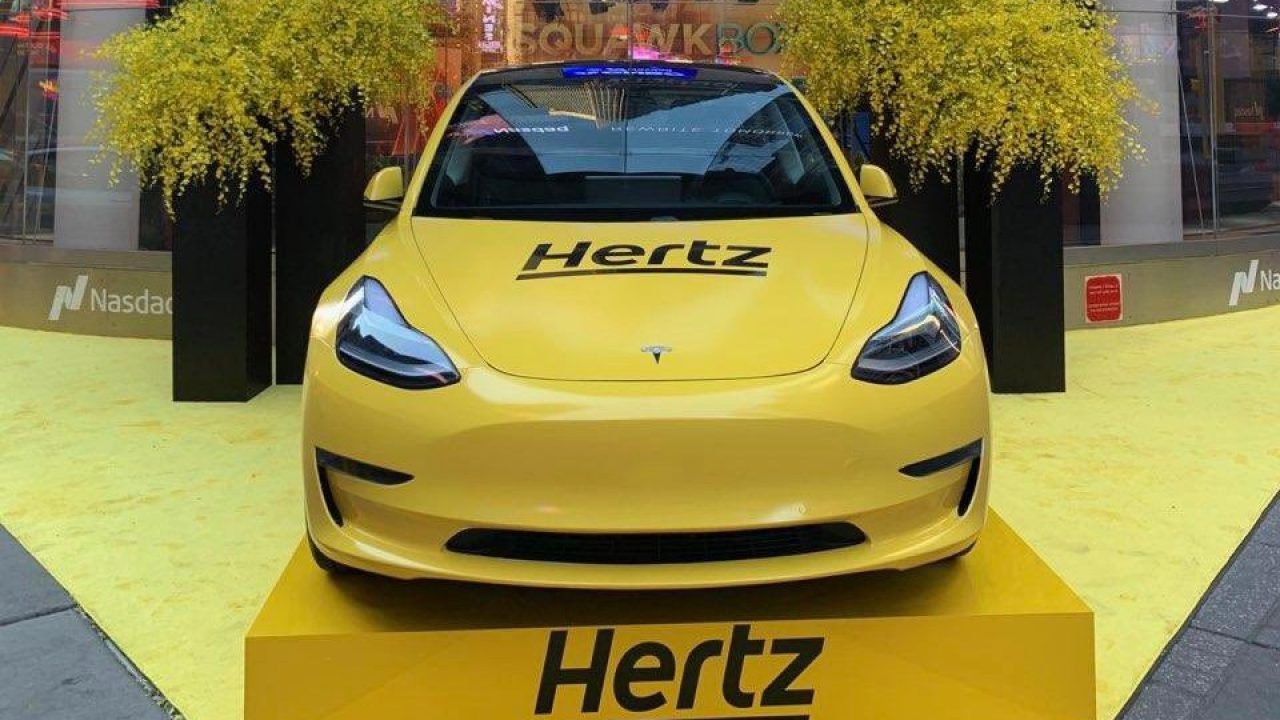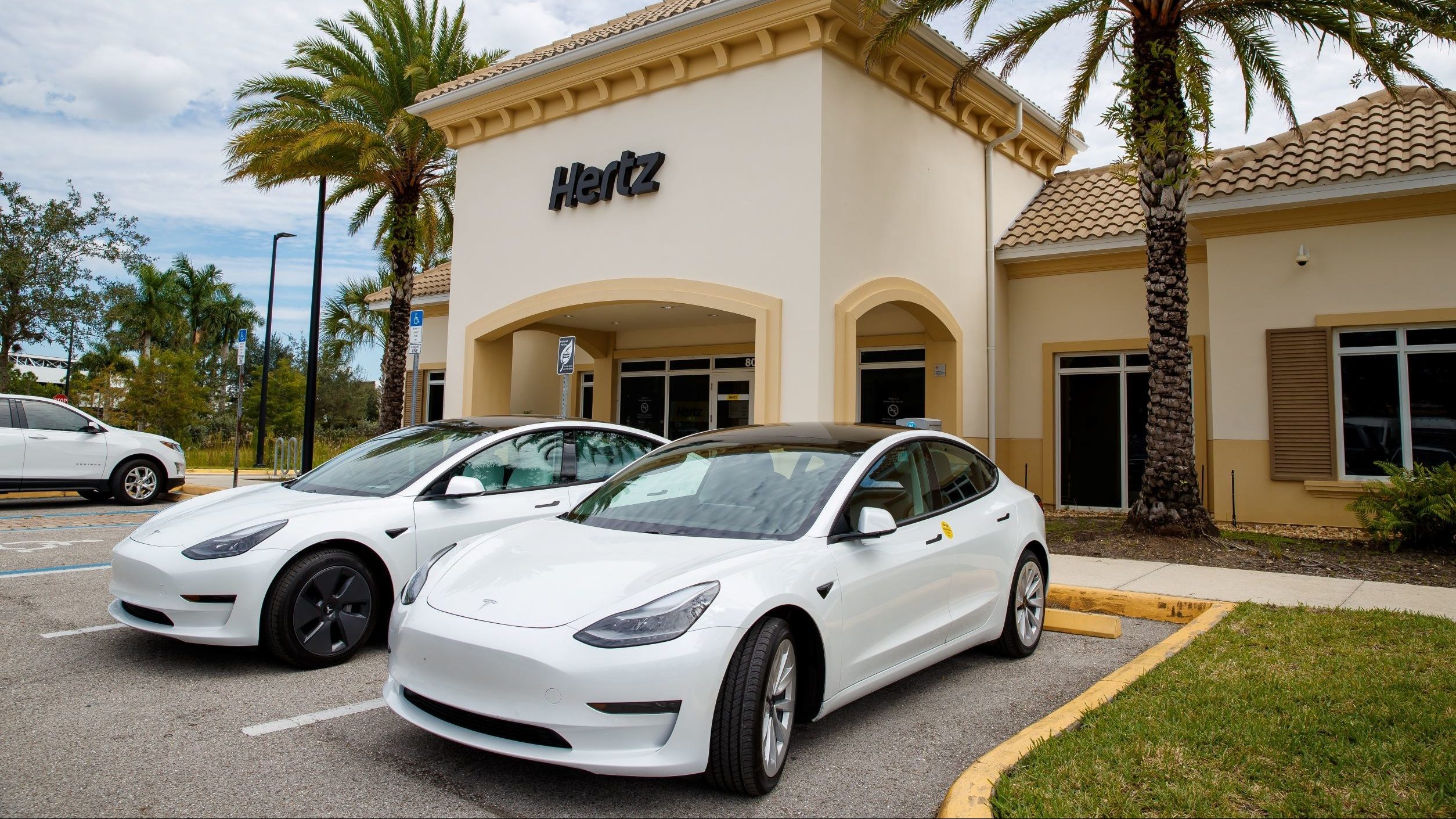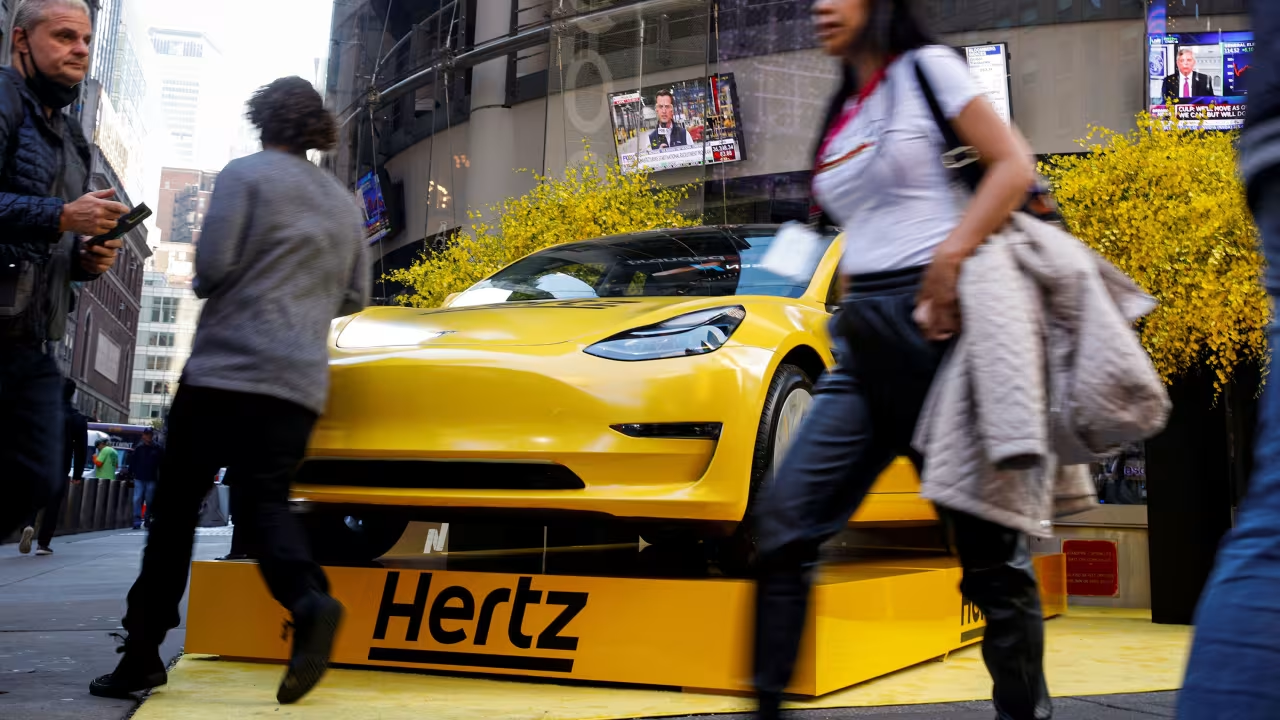Hertz Global Holdings Inc., a familiar name in the rental car industry, has faced a turbulent first quarter marked by substantial financial losses and escalating challenges related to its electric vehicle (EV) fleet. Despite the general uptick in demand for rental cars, the company’s ambitious bet on EVs, primarily composed of Teslas, has turned into a financial headache, showcasing the unpredictable nature of the rapidly evolving automotive landscape.

Hertz: The Financial Strain of Electric Dreams
In a startling revelation, Hertz reported a staggering $392 million adjusted net loss, a significant downturn attributed to its struggling EV operations. The depreciation of its electric vehicles took a harsh toll, with the company incurring a $195 million charge due to Tesla’s price cuts.
This depreciation costs Hertz approximately $592 per vehicle each month, a rate that stands out as excessively high within the industry. Gil West, the company’s newly appointed CEO, expressed concerns over the financial impact of the fleet. “Fleet and direct operating costs weighed on this quarter’s performance,”
West stated. He emphasized the company’s strategic response, which involves adjusting the vehicle supply to balance capital costs while enhancing productivity and reducing operational expenses.
Hertz Stock Dives. Losses on Tesla EVs Bite Into Earnings. – Barron's 🫣🫣🫣🫣🫣🫣🫣 https://t.co/6llMmmTrkE
— Faithful21💙💙💙💙💙💙 (@Faithful21) April 25, 2024
A Shift in Strategy Amid Market Pressures
Hertz’s commitment to electric vehicles was initially seen as a forward-thinking move, particularly during a time when environmental concerns were influencing corporate strategies across industries.
The rental giant even planned to increase its electric fleet, aiming to make 25% of its cars electric by the end of 2024. However, the reality of maintaining and operating a fleet of Teslas has proved more challenging than anticipated.

The company has now decided to scale back its EV ambitions, planning to offload an additional 10,000 electric vehicles, with a total of 30,000 expected to be sold in 2024. This adjustment reflects the broader difficulties facing the EV market, characterized by Tesla’s own struggles with demand and technical setbacks.
Tesla’s Influence and Industry Challenges
Tesla, once a beacon of innovation in the automotive sector, has recently faced several hurdles that have impacted its partners, including Hertz. The automaker’s decision to slash prices was a double-edged sword, aiding sales but also reducing the residual value of its cars, thereby exacerbating Hertz’s financial woes.
Additionally, Tesla’s recall of its 2024 cybertrucks due to accelerator pedal issues, along with cuts in prices across three models, further complicates the landscape.

Mark Fields, Hertz’s former interim CEO, had previously highlighted the strategic nature of the Tesla partnership, aimed at disrupting the industry. Yet, the current scenario depicts a different reality, where high maintenance costs and reliability issues have overshadowed the initial enthusiasm.
Analyst Insights and Future Outlook
Industry experts have not minced words about the execution and marketing challenges faced by companies venturing into the EV space. Daniel Ives of Wedbush Securities commented on the situation, describing it as a “horror show” that has given Hertz a significant “black eye” in terms of its market execution.
As Hertz navigates these tumultuous waters, the path forward involves a careful reassessment of its vehicle strategy and market positioning. With Gil West at the helm, there is cautious optimism that Hertz can stabilize its operations and realign its fleet to better meet market demands and financial realities.
This significant shift in Hertz’s strategy underscores the volatile nature of the EV market and serves as a cautionary tale for other companies in the automotive and rental sectors. As the industry continues to evolve, the balance between innovation and operational feasibility remains a critical challenge.










